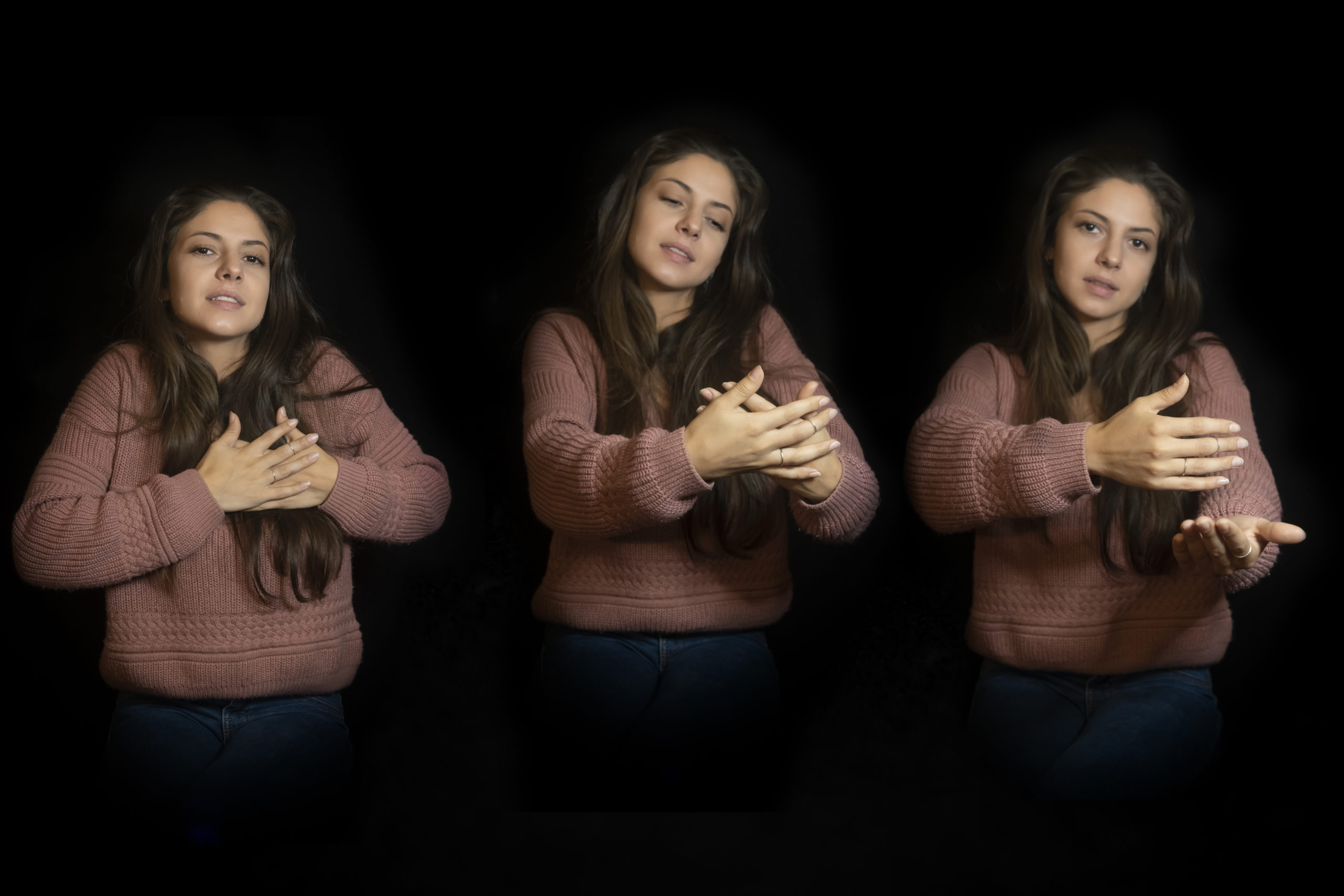
TIM Deaf People Included Project - How a small community has managed to make a great contribution to corporate culture... and go the ‘extra mile’ together
C. Cannarile, R. Putignano, L. De Carlo
In a large company like TIM, there are many ways to talk about and accomplish inclusion. One approach we really like emerged over the course of our 10 years’ worth of experience with our deaf colleagues. They are not a very large group – never more than 70 out of a total of over 40,000 people in Italy – that has managed to find its place in inclusion management policies in concrete and decisive ways: not merely as beneficiaries, but as bearers of solutions.
We started 10 years ago, with the basics, of course: providing all deaf employees with IT equipment optimised for their needs. Smartphones, portable PCs with high-definition webcams (to lipread, but above all to see colleagues who express themselves in Italian Sign Language) and, as technology evolved, dedicated applications to support deaf-hearing communication, both in person and through video. In parallel, our experience in the field has highlighted which sectors best enabled the development of various deaf colleagues’ skills. Often, due to the absence of distractions due to noise, they are better able than others to concentrate on activities and to carry them out with accuracy and speed, even in noisy/open-plan offices. This is an added value that has produced very visible results in the management and remediation of Network Data Banks and in the logistics sector. Our work methodology is also important: having to facilitate collaboration between 7 deaf employees located in 7 different cities, we were ahead of the times – well before there was much talk of smart working – by integrating effective tools for videoconferences, web collaboration and desk sharing.
Today, also by virtue of the partnership between TIM and Pedius (an accelerated start-up within the TIM WCAP programme and which TIM currently has a share in), every deaf colleague has the Pedius app that allows you to:
- Make and receive phone calls with and from any colleague and external user, using text-to-speech technology and vice versa;
- Access an online Italian Sign Language interpreting service, both for one-to-one business meetings and for participation in training activities, videoconferences, staff meetings and online events.
Communicating effectively is essential, but it is not enough to have the appropriate hardware or software: the really enabling factor is a shared culture, bringing the different approaches and skills to all employees. This was the real challenge, which we took up with dissemination, internal communication and co-planning initiatives in recent years: hearing and deaf people have been working together to find solutions aimed at including employees with different abilities. This path culminated with a training session, open on the TIM Academy to the entire company; 4 brief videos featuring, among others, TIM employees, which show the daily difficulties that deaf colleagues face with regard to communication and work, and how some tools and services enable them to be better integrated into work activities.
Where are we today? Inclusion in our company also includes the opportunity to participate in the group's numerous social responsibility initiatives. And, in fact, at a particularly dark and difficult moment for everyone, the deaf community, aware of being able to make an important contribution of its own, activated itself. Since the beginning of the pandemic, a group of deaf employees have made themselves available to collaborate on a TIM project with the Italian National Deaf Organisation. The goal is to facilitate communication between deaf patients hospitalised with COVID-19 both and health workers and family members outside the hospital, through terminals supplied to the hospitals with free interpreting services in Italian Sign Language and communication with technologies that enable text-to-speech and speech-to text communication in real time. This same group is now collaborating with TIMVISION to verify that the sign language in the cartoons that will be available on the platform for Christmas is correct; currently an educational cartoon produced by the San Raffaele University that explains Coronavirus to children in a fun way is already available in the ‘Leo & Giulia’ catalogue. A deaf employee participated enthusiastically and proactively in the first project aimed at promoting the inclusion of employees with Specific Learning Disorders: contributing, with her vision and a lot of empathy, to correctly identifying other, very different communication needs. Deaf and hearing colleagues working side by side was enriching for all involved: because everyone was ‘forced’ to review their way of communicating and to question things they do on autopilot and unconscious stereotypes that they have (exaggerating with facial expressions does not help a deaf person to lipread better, in fact it distorts the lips...), and to listen better. This project is called ‘Deaf People Included’ and it is ‘only’ a small parcel of the fertile ground of inclusion that TIM implements at 360 degrees, with initiatives aimed at all kinds of diversity. We have built our culture of inclusion with training, of course, but also in the field: only concrete work experiences allow everyone – hearing, deaf, short-sighted, dyslexic – to get to know each other and find common ground on which to build, produce, move beyond where we find ourselves now. Our work continues on many different fronts and our permanent laboratory – the TIM4Inclusion community, which includes all employees interested in contributing to enhancing diversity – allows us to continuously and freely consider topics and inclusion initiatives that are important to us. It goes without saying that many deaf employees are a proud part of this community; they offer the same passion and original vision as everyone else and are an example of how, even there is only a small number of us, we can be heard by many.